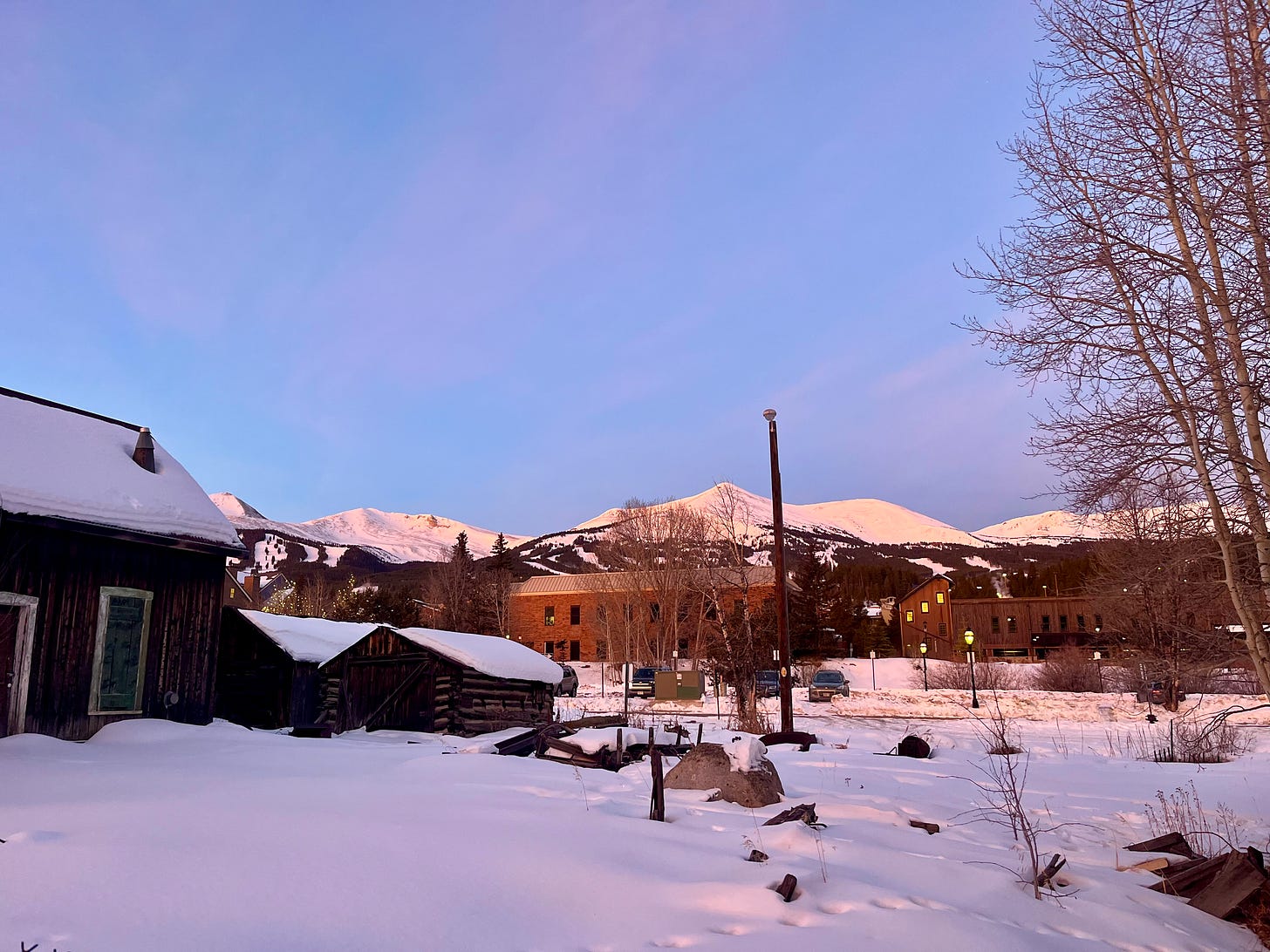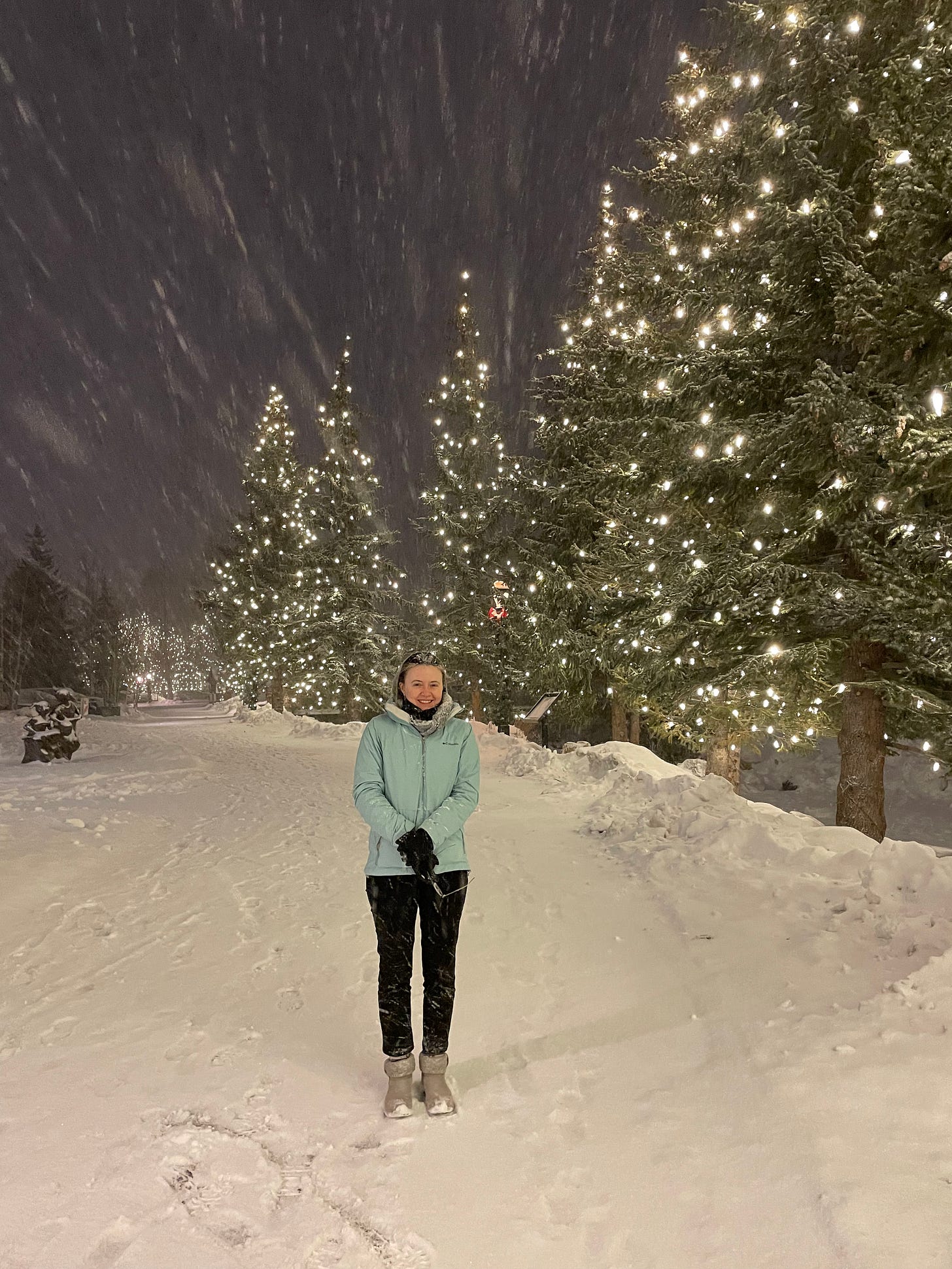(One quick thing: I am offering a 40% off annual subscriptions until Christmas, So if you would like to extend yours or buy on for a friend, Here’s the link).
It’s been five years since I’ve spent Christmas in Colorado, where my parents live and where I spent my teen years. But for the first time in half a decade (isn’t that wild), I found myself squeezing my husband’s hand as a shuttle driver charted our path through mountain passes with stomach swooping drops into deep valleys. Overshadowing the dark journey (for there are few lights on the road this deep in the mountains) are austere peaks, cloaked in snow from which shaggy pines stand out black. It strikes me what a different landscape I grew up in than the one in which I now live. The tall, austere, usually sunny, high desert of Colorado, compared to the marshy, flat, overcast, verdancy of southern England (Scotland is a whole different matter). It makes me think of what Rob MacFarlane’s says about how landscapes affect our ways of understanding ourselves in The Old Ways:
“We tend to think of landscapes as affecting us most strongly when we are in them or on them, when they offer us the primary sensations of touch and sight. But there are also the landscapes we bear with us in absentia, those places that live on in memory long after they have withdrawn in actuality, and such places -- retreated to most often when we are most remote from them -- are among the most important landscapes we possess.”
Macfarlane writes about how living in the sea shapes the metaphors one uses to describe oneself: smooth sailing, being adrift, casting anchor. I wonder as I fight the drunken lull of jet lag what mountain metaphors are lodged deep in my soul, and how, perhaps, my words for the world have changed, having been immersed so long (almost a decade now) in different, more habitable landscapes.
Now, if you know me, you may be thinking but Joy! Your parents don't live in the deep mountains! They leave on the relatively tame front range! And you would be right! And that is because we were not headed immediately to my parent’s, but to Breckenridge. Breckenridge is a ski town about two hours from Denver where my family spent at least a week every year when I was younger. When I knew we’d come back to Colorado for Christmas, I resolved to take a little detour. I was pretty proud to have found a humble vacation rental for us priced in the two digits per night (a feat, trust me). We arrived, dropped off our bags, and went in search of food. Walking back into town, huffing and wheezing, I wondered if perhaps going from sea level to 9,600 feet above sea level with jetlag was, in fact, a bad idea. But, drawing on at least 60% of the wisdom of the internet (drink lots of water, don’t drink caffeine or alcohol, and (most importantly) eat lots of carbs), we made our way to Eric’s Downtown, an arcade and bar my family always visited. We ate a truly tremendous amount of carbs (just doing what we’re told!) and indulged in a few tastes of local brews (can’t always do what we’re told!).
A fitting beginning to a carby, cozy few days. I will not lie: the jet lag and altitude sickness were profound. We woke up at 3AM every morning, and I had a recurring nosebleed. But we really did manage to enjoy ourselves. My husband skied three days, I skied one, and the rest I spent working on the revisions for the introduction to my next book, while cozied with a hot chocolate in the Crown cafe— another institution which has been around since my childhood. The town itself is very charming. Founded 1869, the core of the town is historic cabins and victorian style houses. A river (which once was a sight of gold panning) runs through the town. The town has a truly lovely display of lights hung up on the trees, which function both to be lovely but also to light a path in the snow.
Keep reading with a 7-day free trial
Subscribe to Joy Clarkson to keep reading this post and get 7 days of free access to the full post archives.








